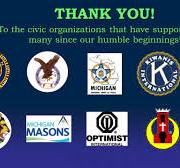The Equal Employment Opportunity Commission (EEOC) plays a crucial role in ensuring workplace equality and fairness for all employees in the United States. Established by Title VII of the Civil Rights Act of 1964, the EEOC is responsible for enforcing federal laws that prohibit discrimination based on race, color, religion, sex, national origin, age, disability, or genetic information.
Employers are required to adhere to these anti-discrimination laws and provide equal employment opportunities to all individuals. The EEOC investigates complaints of discrimination filed by employees against their employers and takes appropriate action to address any violations of the law.
Through its enforcement efforts, the EEOC aims to promote diversity and inclusion in the workplace and ensure that employees are treated fairly and without bias. By holding employers accountable for discriminatory practices, the EEOC helps create a more equitable work environment for everyone.
Overall, the EEOC serves as a vital resource for both employees and employers seeking guidance on workplace discrimination issues. Its mission is to uphold the principles of equal opportunity and protect individuals from unfair treatment based on protected characteristics. Understanding the meaning and role of the EEOC is essential for promoting a culture of respect and equality in today’s diverse workforce.
Understanding the EEOC: 6 Key Insights into Employment Discrimination Laws
- EEOC stands for Equal Employment Opportunity Commission.
- EEOC enforces federal laws that prohibit employment discrimination.
- Employers with 15 or more employees are covered by EEOC laws.
- EEOC investigates complaints of discrimination based on race, color, religion, sex, national origin, age, disability, or genetic information.
- Employees must file a charge with the EEOC before filing a lawsuit for employment discrimination.
- EEOC provides guidance and resources to help prevent workplace discrimination.
EEOC stands for Equal Employment Opportunity Commission.
The acronym EEOC stands for the Equal Employment Opportunity Commission, a federal agency in the United States dedicated to enforcing laws that prohibit discrimination in the workplace based on various protected characteristics such as race, color, religion, sex, national origin, age, disability, or genetic information. The EEOC plays a vital role in promoting equal employment opportunities and ensuring that all individuals are treated fairly and without bias in their work environments.
EEOC enforces federal laws that prohibit employment discrimination.
The Equal Employment Opportunity Commission (EEOC) is tasked with enforcing federal laws that specifically prohibit employment discrimination in the United States. These laws are designed to ensure that individuals are not unfairly treated or denied opportunities in the workplace based on factors such as race, color, religion, sex, national origin, age, disability, or genetic information. By upholding and enforcing these anti-discrimination laws, the EEOC plays a vital role in promoting equal employment opportunities and fostering a more inclusive and diverse workforce across the country.
Employers with 15 or more employees are covered by EEOC laws.
Employers with 15 or more employees are subject to the laws enforced by the Equal Employment Opportunity Commission (EEOC). This means that such employers are required to comply with federal regulations that prohibit discrimination based on various protected characteristics, including race, color, religion, sex, national origin, age, disability, and genetic information. By understanding and adhering to these EEOC laws, employers can create a more inclusive and equitable workplace where all employees are treated fairly and have access to equal employment opportunities. Compliance with EEOC regulations is essential for fostering a work environment that values diversity and upholds the principles of non-discrimination.
EEOC investigates complaints of discrimination based on race, color, religion, sex, national origin, age, disability, or genetic information.
The Equal Employment Opportunity Commission (EEOC) plays a critical role in upholding workplace equality by investigating complaints of discrimination rooted in factors such as race, color, religion, sex, national origin, age, disability, and genetic information. By addressing these issues head-on, the EEOC works to ensure that individuals are not subjected to unfair treatment or bias in the workplace based on these protected characteristics. Through its investigative efforts and enforcement of anti-discrimination laws, the EEOC strives to promote a work environment where diversity is embraced and all employees are treated with respect and equality.
Employees must file a charge with the EEOC before filing a lawsuit for employment discrimination.
Employees must follow the proper procedure by filing a charge with the Equal Employment Opportunity Commission (EEOC) before pursuing legal action through a lawsuit for employment discrimination. This step is crucial as it allows the EEOC to investigate the claim and attempt to resolve the issue through mediation or other means. Filing a charge with the EEOC is often a necessary prerequisite to filing a lawsuit, and it ensures that employees have exhausted all administrative remedies before seeking redress in court. By adhering to this process, employees can protect their rights and increase the likelihood of achieving a fair resolution to their discrimination claims.
EEOC provides guidance and resources to help prevent workplace discrimination.
The Equal Employment Opportunity Commission (EEOC) offers valuable guidance and resources to assist in the prevention of workplace discrimination. By providing employers and employees with information on anti-discrimination laws, best practices, and training materials, the EEOC plays a proactive role in promoting a fair and inclusive work environment. Through its educational initiatives and outreach efforts, the EEOC empowers individuals and organizations to recognize, address, and prevent discriminatory behavior in the workplace, ultimately fostering a culture of equality and respect for all.


